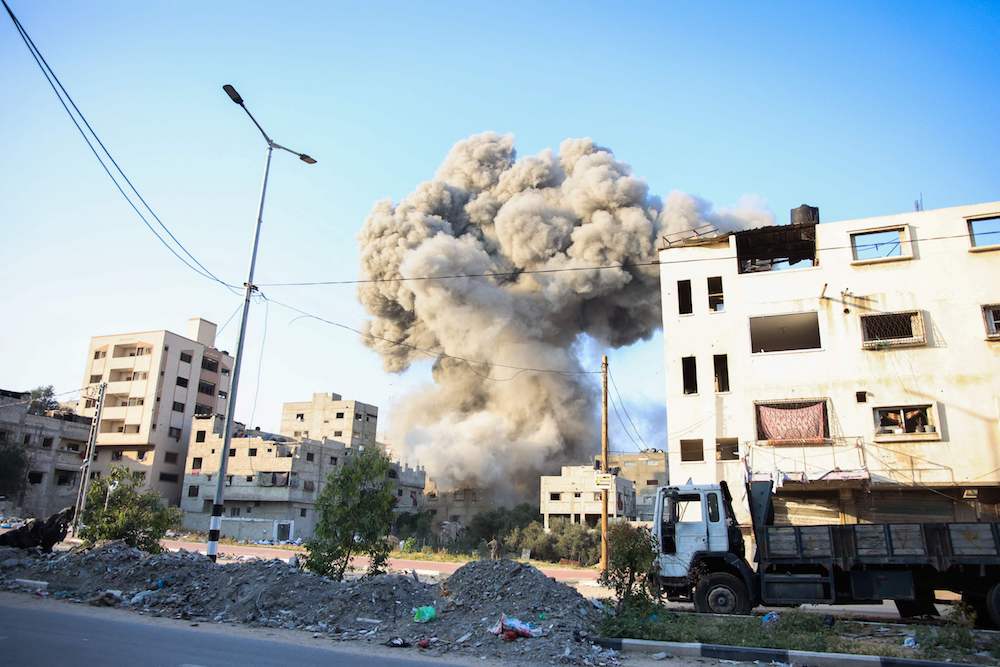LONDON: The 2 million Palestinians who live in the Gaza Strip can now be accurately described as a population of “survivors,” a UN humanitarian chief said on Tuesday.
Andrea De Domenico, head of the UN’s Office for the Coordination of Humanitarian Affairs operations in the Occupied Palestinian Territories, said the situation in Gaza during Israel’s continuing war against Hamas is “dire, tense and very volatile.”
The OCHA is “making all effort possible” to deliver aid to the territory, he added, but “the reality is that there is very little that we can bring to inside Gaza to tackle displacement and battle the looming famine.”
De Domenico said that if the widely predicted famine in Gaza comes to pass, it would be “completely man-made and preventable.”
He added that while there have been recent additional efforts by the UN, and by the Israelis “to some extent,” to increase the amount of aid entering northern Gaza, the worst-affected part of the territory, the situation would require a “massive operation” simply to reach the “minimum standard” of aid that is needed, which is something the OCHA is not in a position to mount at this time.
On Sunday, the agency said Israel “impeded or denied access” to 41 percent of UN-coordinated aid missions in northern Gaza between April 6 and 12.

A plume of smoke billows during Israeli bombardment at Al-Daraj neighbourhood in Gaza City on April 16 amid ongoing battles between Israel and Hamas. (AFP)
De Domenico also highlighted the “problematic situation” in and around hospitals in Gaza, especially at Al-Shifa where heavy fighting has caused widespread damage and destruction, which he said was proving to be another major obstacle to the delivery of aid and other relief supplies.
“Our team entered (Al-Shifa hospital) in the following days (after the fighting) and have had to deal with a scene of terror; the hospital is completely dysfunctional at this moment,” he said.
“The number of bodies that have been buried in or on the premises of Al-Shifa, or around the hospital, has also been problematic, to the point that UN and Palestinian colleagues have helped the families to start to recognize the remnants of the corpses.”
Also on Tuesday, it was revealed that relentless Israeli airstrikes have destroyed every university in Gaza. This, coupled with the fact that all schools in the territory have been closed since Israel launched its military offensive in October, means it will “take years” for the enclave’s 625,000 students to return to their studies, De Domenico said.
On Monday, the UN’s humanitarian coordinator for the Occupied Palestinian Territories, Jamie McGoldrick, said about 800,000 Palestinians might be forced to flee Gaza if the Israeli military goes ahead with a threatened ground incursion in the southern city of Rafah, close to the border with Egypt, which has become the final refuge for hundreds of thousands of people displaced by fighting in other parts of the territory.
He added that about 90 percent of approximately 4,000 buildings located along Gaza’s eastern border with Israel have been destroyed or damaged during the war, according to the UN Satellite Center.
















